

Dr Beukes (CEMIS, US), Dr S Bachmann (BU) and Prof Liebenberg (CEMIS, US)
Latest research and knowledge exchange news at Bournemouth University


Dr Beukes (CEMIS, US), Dr S Bachmann (BU) and Prof Liebenberg (CEMIS, US)
The chapter is called, “Interplay between lipid mediators and the immune system in the promotion of brain repair”, and looks at the interactions of omega-3 and omega-6 fatty acids with endocannabinoids in neuroinflammation, neurogenesis and brain aging.
The brain is highly enriched in docosahexaenoic (DHA) and arachidonic (ARA) acids, omega-3 and omega-6 polyunsaturated fatty acids (PUFAs), respectively. DHA and other long-chain omega-3 PUFAs are precursors of anti-inflammatory and pro-resolving mediators, whereas ARA is precursor of inflammatory eicosanoids, but also pro-resolving mediators. The endocannabinoid system comprises a group of bioactive lipids, receptors and enzymes involved in their synthesis and degradation. 2-archidonoylglycerol (2-AG) and anandamide (AEA) are the primary agonists of cannabinoid receptors in the brain, substrate for enzymes such as cyclooxygenases, lipoxygenases and cytochrome P450 mixed function oxygenases, which release ARA upon hydrolysis. The aging brain has impaired ability to balance protective and detrimental effects of the immune system and chronic low-grade neuroinflammation is a contributor to cognitive impairment and development of neurodegenerative diseases. There is a complex interplay between omega-3 and omega-6 PUFAs, the endocannabinoid system and the immune system. This chapter summarises current evidence of this interplay and discusses the therapeutic potential in the promotion of brain self-repair.
Dr Simon Dyall’s Bioactive Lipids Research Lab conducts research investigating the role of bioactive lipid mediators in brain protection and repair across the lifespan and following neurotrauma.
The book, Role of the Mediterranean Diet in the Brain and Neurodegenerative Disease” is edited by Farooqui T. and Farooqui A., and is due for publication 1st November 2017 by Academic Press. Paperback ISBN: 9780128119594
Yogarajah Nanthagaopan has successfully completed the first PhD in Project Management from the Faculty of Management. He was supervised by Dr Nigel L. Williams and Professor Stephen Page and his thesis was titled: A Resource Based Perspective on Project Management in NGOs. Dr Nanthangaopan has returned to his native Sri Lanka and is the current Head of Economics and Management department and Coordinator for the BBM in Project Management degree program at the Faculty of Business Studies, Vavuniya Campus of the University of Jaffna, Sri Lanka.
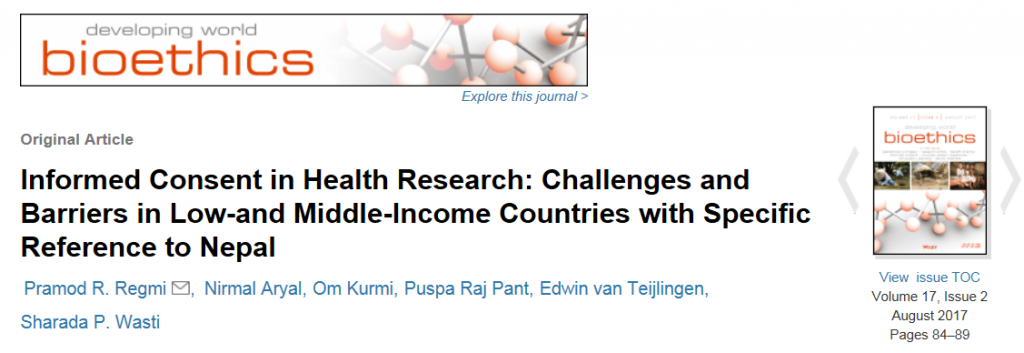 Next months sees the publication of our latest article on research ethics in developing countries [1]. Our paper argues that despite a significant increase in health research activity in low-and middle-income countries (LMICs) in recent years, only limited work has been done to address ethical concerns. Most ethics committees in LMICs lack the authority and/or the capacity to monitor research in the field. This is important since not all research, particularly in LMICs region, complies with ethical principles, sometimes this is inadvertently or due to a lack of awareness of their importance in assuring proper research governance. With several examples from Nepal, this paper reflects on the steps required to obtain informed consents and highlights some of the major challenges and barriers to seeking informed consent from research participants. At the end of this paper, we also offer some recommendations around how can we can promote and implement optimal informed consent taking process.
Next months sees the publication of our latest article on research ethics in developing countries [1]. Our paper argues that despite a significant increase in health research activity in low-and middle-income countries (LMICs) in recent years, only limited work has been done to address ethical concerns. Most ethics committees in LMICs lack the authority and/or the capacity to monitor research in the field. This is important since not all research, particularly in LMICs region, complies with ethical principles, sometimes this is inadvertently or due to a lack of awareness of their importance in assuring proper research governance. With several examples from Nepal, this paper reflects on the steps required to obtain informed consents and highlights some of the major challenges and barriers to seeking informed consent from research participants. At the end of this paper, we also offer some recommendations around how can we can promote and implement optimal informed consent taking process.
 The paper is co-written by six authors, and interestingly five are graduates of the University of Aberdeen. These Aberdeen University graduates are currently affiliated with five different universities. Four of who are based in the UK at: the University of Liverpool, the University of the West of England, the University of Oxford, and in Bournemouth University’s Centre for Midwifery, Maternal & Perinatal Health (CMMPH) and one in the USA: Georgetown University. The sixth co-author, Nirmal Aryal, is currently a PhD student at the University of Otago in Dunedin (New Zealand). Whilst Liverpool-based researcher Dr. Pramod Regmi is heading back for Bournemouth University to become a lecturer in International Health in the Faculty of Health & Social Sciences this autumn.
The paper is co-written by six authors, and interestingly five are graduates of the University of Aberdeen. These Aberdeen University graduates are currently affiliated with five different universities. Four of who are based in the UK at: the University of Liverpool, the University of the West of England, the University of Oxford, and in Bournemouth University’s Centre for Midwifery, Maternal & Perinatal Health (CMMPH) and one in the USA: Georgetown University. The sixth co-author, Nirmal Aryal, is currently a PhD student at the University of Otago in Dunedin (New Zealand). Whilst Liverpool-based researcher Dr. Pramod Regmi is heading back for Bournemouth University to become a lecturer in International Health in the Faculty of Health & Social Sciences this autumn.
Prof. Edwin van Teijlingen
CMMPH
Reference:
The FAR project webpages have now been published.
BU’s pioneering Fair Access Research project has brought together students, SUBU, professional, service and academic staff from across the university to develop and expand expertise and reflexive practice in the field of fair access to higher education.
Each member of the team has brought different knowledge and experiences to a series of innovative research projects exploring what it means to be a ‘non-traditional’ student in the 21st century. FAR has inspired new ways of thinking about fair access and widening participation through this ‘whole institution approach’,
The team has explored all the different stages in the student lifecycle developing an understanding of the challenges some students face in accessing or succeeding at university, how university is experienced by diverse groups of students and how the university can support them in the optimum way when they are here.
Explore the five themes of the FAR programme on the webpages at https://research.bournemouth.ac.uk/project/fair-access-research-and-practice-far/
Outreach

Contact principal investigators Dr Vanessa Heaslip or Dr Clive Hunt for further information
Following a process of consultation the Faculty of Health and Social Sciences has identified three research priority areas that will guide our research investment for 2017-18. The research entities (centres and clusters) listed below sit within these areas. You can read more about each research entity and its members by clicking on the link.
Long term health challenges
Marginalised voices
Clinical Research
Kun Qian is a PhD candidate in the National Centre for Computer Animation, Faculty of Media and Communication. He has been working on computer graphics, game, vfx and virtual reality technologies for more than 10 years. He will deliver a talk on his research of surgery simulation at 7pm, 25th July at K103, as part of the BCS Animation and Game Development SG event. The detail can be found at http://www.bcs.org/content/ConWebDoc/58181 . It is free for all the attendees, everybody is welcome. Please register at the link above, because we will bring some refreshment based on the number of registrations.
Abstract: With the development of computer graphic and haptic devices, training surgeons with virtual reality technology has proven to be very effective in surgery simulation. Due to the various unsolved technical issues, the laparoscopic surgery simulation has not been widely used. Such issues include modelling of complex anatomy structure, large soft tissue deformation, frequent surgical tools interactions, and the rendering of complex material under the illumination. A successful laparoscopic surgery simulator should integrate all these required components in a balanced and efficient manner to achieve both visual/haptic quality and a satisfactory refreshing rate. In this talk, we propose an efficient framework integrating a set of specially tailored and designed techniques, ranging from deformation simulation, collision detection, soft tissue dissection and rendering. This framework can be used as a low level engine for surgery simulation by integrating and optimizing modern creative technologies.
Dr. Xiaosong Yang, MBCS
Associate Professor of Computer Animation
National Centre for Computer Animation
Faculty of Media and Communication
Bournemouth University
http://staffprofiles.bournemouth.ac.uk/display/xyang
 Clinical Services Journal highlighted our recent research report on Community Hospitals, see article here!. The NIHR research has been conducted by RAND Europe, the European Observatory on Health Systems & Policies, and Bournemouth University [1].
Clinical Services Journal highlighted our recent research report on Community Hospitals, see article here!. The NIHR research has been conducted by RAND Europe, the European Observatory on Health Systems & Policies, and Bournemouth University [1].
Our report concluded that community hospitals could play a more active role in meeting the challenges facing the NHS, in particular in larger hospitals. The notion of a Community Hospital in the UK is evolving from the traditional model of a local hospital staffed by general practitioners and nurses and serving mainly rural populations. Along with the diversification of models, there is a renewed policy interest in Community Hospitals and their potential to improve integrated care. However, there is a need to better understand the role of different models of Community Hospitals within the wider health economy and an opportunity to learn from experiences of other countries to inform this potential.
Prof. Edwin van Teijlingen
CMMPH
Reference:
 The above event is bring hosted by the Welsh Government, Innovate UK, the Enterprise Europe Network, and the Knowledge Transfer Network which is aimed at supporting collaboration in Wales, across the UK and in Europe.
The above event is bring hosted by the Welsh Government, Innovate UK, the Enterprise Europe Network, and the Knowledge Transfer Network which is aimed at supporting collaboration in Wales, across the UK and in Europe.
They will be promoting funding opportunities available for health, demographic change and wellbeing through Horizon 2020, the EU’s largest research and innovation funding programme, with over 1 billion Euros earmarked for calls in 2018/2019.
Delegates can expect:
Registration is open, with places free but limited.
Emily Cieciura (RKEO’s Research Facilitator: EU & International) has provisionally booked to attend (confirmation of places will be given later, so do not book travel until then, if you register). If BU Staff are a unable to attend but would like to receive an update after this meeting, please contact Emily.
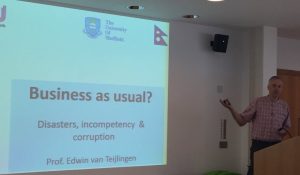 BU professor Edwin van Teijlingen from the Centre for Midwifery, Maternal & Perianal Health (CMMPH) had the honour of being invited to speak at a workshop ran yesterday by the Sheffield Institute for International Development. The workshop ‘Nepal: Reconstruction, Resilience and Development’ was organised by the University of Sheffield.
BU professor Edwin van Teijlingen from the Centre for Midwifery, Maternal & Perianal Health (CMMPH) had the honour of being invited to speak at a workshop ran yesterday by the Sheffield Institute for International Development. The workshop ‘Nepal: Reconstruction, Resilience and Development’ was organised by the University of Sheffield.
Prof. Edwin van Teijlingen spoke about endemic corruption in Nepal and opportunities that are offered by disasters such as earthquakes for more corruption. He pointed out that there is little research on corruption in Nepal, despite its low ranking on the international Corruption Perceptions Index. The presentation can be viewed here: Nepal earthquake corruption 2017 . 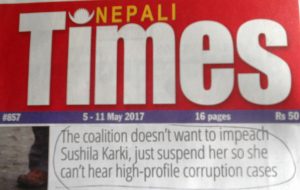
He pointed out that disasters are confusing events with often loads of money and relief aid arriving under chaotic conditions. Immediate emergency aid needs to be distributed to unknown people (‘those affected’), in difficult to access areas, under often chaotic socio-political conditions.
He also reminded the audience that corruption (and corrupt behaviour) are not limited to low-income countries. He highlighted the Ariana Grande case in Manchester (UK) where thousands falsely claimed to have been at the original attacked concert when applying for a ticket for the Manchester One Love concert.
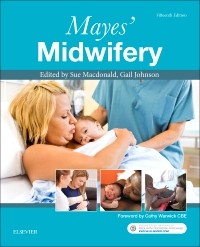 This month has been exceptionally good for BU publications in the field of midwifery and maternity care. Two PhD students has their articles published in international academic journals, one member of staff had a textbook chapter published, an interdisciplinary team has been accepted for publication in the British Journal of Midwifery, and a member of the Centre for Midwifery, Maternal & Perinatal Health (CMMPH) co-authored this month’s editorial in the Journal of Asian Midwives as well as an epidemiology paper on the HPV (Human Papilloma Virus) in Nepal.
This month has been exceptionally good for BU publications in the field of midwifery and maternity care. Two PhD students has their articles published in international academic journals, one member of staff had a textbook chapter published, an interdisciplinary team has been accepted for publication in the British Journal of Midwifery, and a member of the Centre for Midwifery, Maternal & Perinatal Health (CMMPH) co-authored this month’s editorial in the Journal of Asian Midwives as well as an epidemiology paper on the HPV (Human Papilloma Virus) in Nepal. 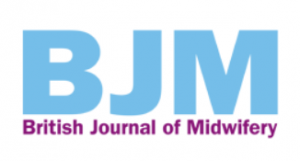
The first of this success story was CMMP PhD student Preeti Mahato whose her latest paper ‘Factors related to choice of place of birth in a district in Nepal’ appeared in the Elsevier journal Sexual & Reproductive Healthcare [1]. The second PhD paper was also based on research in Nepal this time by Sheetal Sharma whose paper ‘Evaluation a Community Maternal Health Programme: Lessons Learnt’ appeared in Journal of Asian Midwives [2]. The textbook chapter was by Dr. Jenny Hall who contributed a chapter to the latest edition of Mayes Midwifery , which is the classic midwifery textbook and now in its 15th edition [3]. The interdisciplinary paper is by Angela Warren, service user and carer coordinator PIER partnership, Dr Mel Hughes, principal academic in social work, academic lead for PIER partnership, and Dr Jane Fry and Dr Luisa Cescutti-Butler who are both senior lecturers in midwifery in the Centre for Midwifery, Maternal & Perinatal Health (CMMPH) [4]. The latest issue of the Nepal Journal of Epidemiology carried a CMMPH co-authored paper on the HPV in young women in Nepal [5]. The final piece, an editorial, appeared yesterday in the latest issue of the Journal of Asian Midwives [6].
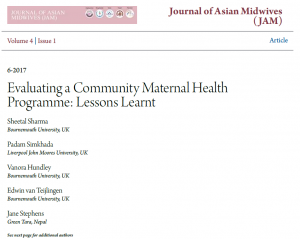
Congratulations to all authors!
Prof. Edwin van Teijlingen
CMMPH
References:
 Congratulations to Sheetal Sharma whose latest article appeared in today’s new issue of Journal of Asian Midwives [1]. Sheetal wrote the paper ‘Evaluation a Community Maternal Health Programme: Lessons Learnt’ with her PhD supervisors Dr. Catherine Angell, Prof. Vanora Hundley, Prof. Edwin van Teijlingen and Prof. Padam Simkhada (Liverpool John Moores University & FHSS Visiting Professor) and the director of Green Tara Nepal Mr. Ram Chandra Silwal and the founder of Green Tara Trust, London, Dr. Jane Stephens. The Journal of Asian Midwives is an Open-Access journal hence this article is freely available across the globe.
Congratulations to Sheetal Sharma whose latest article appeared in today’s new issue of Journal of Asian Midwives [1]. Sheetal wrote the paper ‘Evaluation a Community Maternal Health Programme: Lessons Learnt’ with her PhD supervisors Dr. Catherine Angell, Prof. Vanora Hundley, Prof. Edwin van Teijlingen and Prof. Padam Simkhada (Liverpool John Moores University & FHSS Visiting Professor) and the director of Green Tara Nepal Mr. Ram Chandra Silwal and the founder of Green Tara Trust, London, Dr. Jane Stephens. The Journal of Asian Midwives is an Open-Access journal hence this article is freely available across the globe.
Reference:
Sharma, S., Simkhada, P., Hundley, V., van Teijlingen, E., Stephens, J., Silwal, R.C., Angell, C. (2017) Evaluation a Community Maternal Health Programme: Lessons Learnt. Journal of Asian Midwives. 4(1): 3–20.
We have the honor to have Prof. Marina L. Gavrilova here on our campus to deliver a talk on Biometric Recognition, recognizing a person by determining the authenticity of a specific characteristic – biometric features, such as Physiological Biometrics (face, fingerprint, hand, ear, Iris, palm print, hand vein, tooth, retina etc.), Behavioural Biometrics (voice, gait, signature, key-stroke dynamics, etc) and Social Biometrics (Twitter, Flickr, etc). The talk will discuss various problems in biometric data acquisition, feature matching, multi-modal fusion, pattern recognition, etc.
Title: The Social Aspects of Biometric Recognition through Human Perception
Speaker: Prof. Marina L. Gavrilova, Department of Computer Science, University of Calgary
Venue: CREATE LT, Fusion Building, Talbot Campus, Bournemouth University, Fern Barrow, Poole, Dorset, BH12 5BB
Time: 14:30-15:30 Wednesday 26th July 2017
Abstract: Our society continues to undergo tremendous growth with respect to all aspects of information access and sharing. It had a profound effect on the way we, humans, and the whole society lives, works and interacts in business and social settings. The information being shared through social networks, on-line communities, games, software development tools, e-mails, blogs, posts, etc. is enormous. It also ranges in type: text, images, hyperlinks, likes, network connections, etc. What’s more, human social, behavioral and even cognitive traits are becoming more and more visible through interlinking of heterogeneous communications in on-line and off-line settings and even in our visual preferences. This phenomenon gave rise to the rise of a new concept: Social Biometrics, that attempts to understand and extrapolate trends related to all aspects of human social activities. The talk is devoted to definitions, examples, case studies and very recent research trends in this domain. The introduced concepts will be further illustrated through two case studies: establishing identity of Twitter users through social networks analysis, and gender recognition of Flickr users based on human aesthetic preferences.
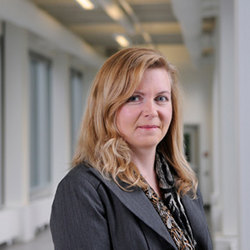
Marina L. Gavrilova is a Full Professor in the Department of Computer Science, University of Calgary. Dr. Gavrilova’s research interests lie in the areas of biometric security, cognitive sciences, pattern recognition, social networks, and cyberworlds. Prof. Gavrilova is the founder and co-director of the Biometric Technologies Laboratory and SPARCS lab, with over 200 publications, including the World Scientific Bestseller (2007): Image Pattern Recognition: Synthesis and Analysis in Biometrics and IGI (2013) book Multimodal Biometrics and Intelligent Image Processing for Security System. She is a Founding Editor-in-Chief of Transactions on Computational Science journal, Springer, and an Associate Editor of the Visual Computer and the International Journal of Biometrics. Prof. Gavrilova has given invited lectures at leading international conferences (3AI, CW, WSCG, GRAPHICON, PSC, ICCI*CC, MIT, ICBAKE, etc), and appeared as guest at DIMACS Rutgers University/Bell Labs, USA; Microsoft Research, Redmond, USA; Samsung Research, South Korea; SERIAS Purdue University, USA, among other universities.
http://pages.cpsc.ucalgary.ca/~marina/HomePHP/index.php
Thanks.
Dr. Xiaosong Yang
http://staffprofiles.bournemouth.ac.uk/display/xyang
 Congratulations to Faculty of Health & Social Sciences (FHSS) PhD student Folashade Alloh and Dr. Pramod Regmi, newly appointed lecturer in International Health. They just published ‘Effect of economic and security challenges on the Nigerian health sector’ in the journal African Health Sciences. The paper is Open Access and can be found here!
Congratulations to Faculty of Health & Social Sciences (FHSS) PhD student Folashade Alloh and Dr. Pramod Regmi, newly appointed lecturer in International Health. They just published ‘Effect of economic and security challenges on the Nigerian health sector’ in the journal African Health Sciences. The paper is Open Access and can be found here!
Well done!
Prof. Edwin van Teijlingen
CMMPH
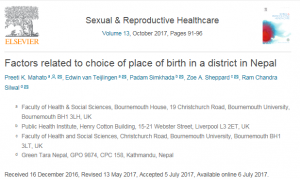 Congratulations to Preeti Mahato, PhD student in the Centre for Midwifery, Maternal & Perinatal Health, on the publication of her latest paper ‘Factors related to choice of place of birth in a district in Nepal’ in the Elsevier journal Sexual & Reproductive Healthcare [1]. The paper based on her research work in Nawalparasi, southern Nepal. This new paper is the third paper form Preeti’s PhD work [2-3].
Congratulations to Preeti Mahato, PhD student in the Centre for Midwifery, Maternal & Perinatal Health, on the publication of her latest paper ‘Factors related to choice of place of birth in a district in Nepal’ in the Elsevier journal Sexual & Reproductive Healthcare [1]. The paper based on her research work in Nawalparasi, southern Nepal. This new paper is the third paper form Preeti’s PhD work [2-3].
Reference:
Dr Elvira Bolat from the Department of Marketing at the Faculty of Management has been awarded the prestigious Academy of Marketing Research Fund.
Her research titled ‘From Compassion to Defence: Exploring Service Brands’ Trust Repair Mechanisms across Traditional and Digital Media’ is the sub-project of the Faculty of Management’s QR-funded project on Trust Repair in the service sectors, led by Dr Julie Robson. 
Using integrative content analysis and emotional text analysis, Dr Bolat’s project will explore the trust repair process and trust repair mechanisms used in the context of traditional and digital media, within selected high profile trust erosion cases in the service sectors. Dr Robson (Department of Marketing, FM), Professor Juliet Memery (Department of Marketing, FM) and Dr Caroline Jackson (Department of Leisure and Events, FM) are acting as mentors for the project and advising on the contextual setting of the study.
Moreover, this project supports Dr Bolat in acquiring new skills in quantitative analysis of qualitative data and deepening understanding and use of language processing software.
Dr Bolat comments: “Academy of Marketing is one of the biggest international organisations to support marketing scholars and to be one of the few recipients of this prestigious funding scheme is an absolute honour. This also helps our QR project to extend its impact and reach.”
To find out what other projects are recipients of this year’s Academy of Marketing Research funding scheme, access: https://www.academyofmarketing.org/research/amrc-research-funding/
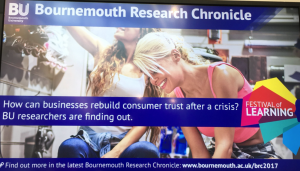 Trust Repair team has delivered a successful Festival of Learning 2017 event on 11 July titled ‘Lies and Scandals: Whatever happened to Trust?’ and received an overwhelmingly positive feedback from the audience. Once of things that came out of this interactive event is a powerful impact media has on stakeholders’ interpretation of organisational transgressions and, therefore, on ability of brands to repair trust damage. Hence, this sub-project will help in extending scholar’s and practitioners’ understanding on role of both traditional and digital media play in repairing trust towards brands.
Trust Repair team has delivered a successful Festival of Learning 2017 event on 11 July titled ‘Lies and Scandals: Whatever happened to Trust?’ and received an overwhelmingly positive feedback from the audience. Once of things that came out of this interactive event is a powerful impact media has on stakeholders’ interpretation of organisational transgressions and, therefore, on ability of brands to repair trust damage. Hence, this sub-project will help in extending scholar’s and practitioners’ understanding on role of both traditional and digital media play in repairing trust towards brands.
This grant is a very positive recognition of BU’s standing internationally and nationally within marketing and consumer behaviour research and contributes towards a growing impact generated by Influences on Consumer Behaviour research centre.
To connect with Dr Bolat, email at ebolat@bournemouth.ac.uk or tweet at @Elvira_MLady
To follow Trust Repair project, tweet at @TrustRepairBU
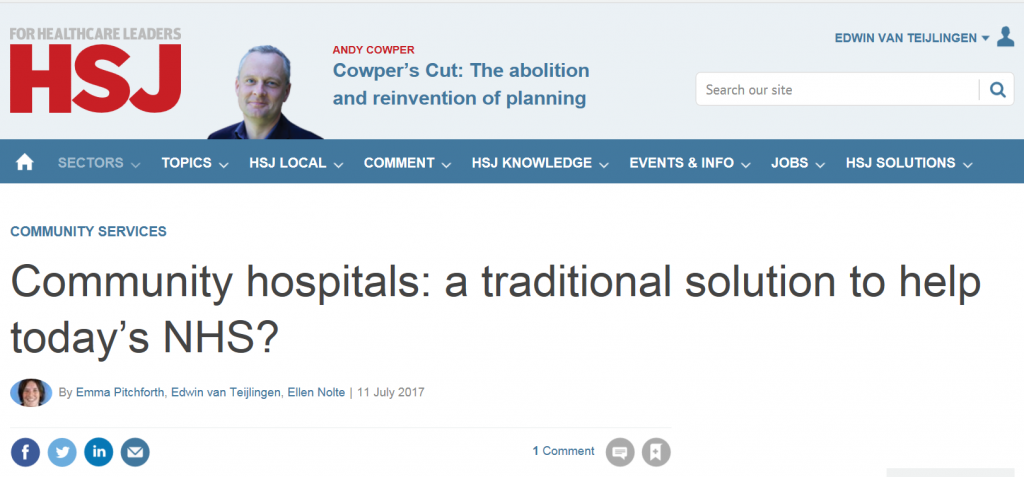
The Health Services Journal published a commentary this week on Community Hospitals [1]. This online article is written by Dr. Emma Pitchforth who is based at RAND Europe in Cambridge (& BU Visiting Faculty), Prof. Edwin van Teijlingen (Faculty of Health & Social Sciences) and Dr. Ellen Nolte based at the European Observatory on Health Systems and Policies. 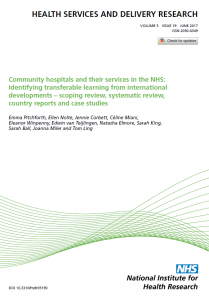
The authors highlight the recently completed NIHR study on Community Hospitals [2]. The notion of a Community Hospital in the UK is evolving from the traditional model of a local hospital staffed by general practitioners and nurses and serving mainly rural populations. Along with the diversification of models, there is a renewed policy interest in community hospitals and their potential to deliver integrated care. However, there is a need to better understand the role of different models of community hospitals within the wider health economy and an opportunity to learn from experiences of other countries to inform this potential.
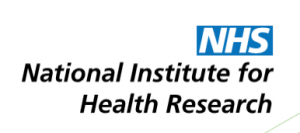 With ease of access and a sense of homeliness, there is potential for Community Hospitals to be better integrated into NHS in England. The authors suggest that a more strategic role for ‘traditional’ Community Hospitals might be timely within the NHS in England. They further conclude that if challenges around Community Hospitals are addressed and their within the English health system is properly defined, they could provide positive benefits to the health service. It seems that, if done correctly, Community Hospitals could be a traditional solution to help address some of the modern day challenges of the NHS.The full NIHR report is Open Access and can be found here!
With ease of access and a sense of homeliness, there is potential for Community Hospitals to be better integrated into NHS in England. The authors suggest that a more strategic role for ‘traditional’ Community Hospitals might be timely within the NHS in England. They further conclude that if challenges around Community Hospitals are addressed and their within the English health system is properly defined, they could provide positive benefits to the health service. It seems that, if done correctly, Community Hospitals could be a traditional solution to help address some of the modern day challenges of the NHS.The full NIHR report is Open Access and can be found here!
Last year the research team had already published a scoping review article from the NIHR study [3].
References:
Golf occupies a prominent place in the global sport community and BU is one of only a few universities offering a full degree course on golf management. Dr Tim Breitbarth (Department of Sport & Physical Activity) is the lead editor of the first book that introduces the fundamentals of golf business and management from a truly international perspective. 30 authors from 6 continents are covering key topics such as media, club management, sponsorship and retail, at elite and non-elite levels. Already, the book has received endorsement from the top of the golf sector, namely Guy Kinnings (Global Head of Golf, IMG) and Martin Slumbers (Chief Executive, The R&A).
With sections exploring the development of golf on every single continent, this book presents the latest thinking on current issues in golf, ranging from sustainability and innovation to global governance. Each chapter incorporates helpful features for students including learning objectives, discussion questions, guides to further reading, recommended websites and insights from industry voices.
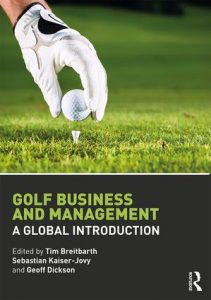
Essential reading
This book co-edited together with Sebastian Kaiser-Jovy (Heilbronn University, GER) and Geoff Dickson (AUT, New Zealand) is essential reading for students of any golf-related degree course or professional accreditation programme, and will also be of interest to those studying or working in sport business, sport management and sport tourism. Underpinned by up-to-date literature, golf researchers will also find the book a useful starting point.
Contributors range from internationally renowned academics such as professors David Shilbury (Deakin University, AUS) and Karen Danychuk (Western University, CAN) to a senior vice president at Club Managers Association of America (USA) and managers at PricewaterhouseCoopers (Switzerland) and Brazilian Golf Federation. Also, ex-BU PhD student associate professor Brendon Knott (SA), BU honorary PhD Eddie Bullock (UK) and BSc sport management golf alumni Luke Frary (UK) have contributed their golf expertise.
For more information, including contents, contributors and purchasing options, see: https://www.routledge.com/Golf-Business-and-Management-A-Global-Introduction/Breitbarth-Kaiser-Jovy-Dickson/p/book/9781138957176
Dr Tim Breitbarth (Principal Academic and Global Engagement Lead, Department of Sport & Physical Activity) is available at tbreitbarth@bournemouth.ac.uk
Reviews by Guy Kinnings (Global Head of Golf, IMG) and Martin Slumbers (Chief Executive, The R&A)
“In 1960, a handshake between Mark McCormack and Arnold Palmer became the foundation of not just golf management but modern sport business. In 2017 and beyond, we must all work toward addressing some of the challenges that the sport naturally has to overcome to evolve and remain relevant. With, for example, the re-introduction of golf to the 2016 Olympics, the momentum is on our side. There is great opportunity in global golf.”
“One of the key challenges for the golf industry is to be alive to the changing demands of people’s modern day lifestyles, particularly when research demonstrates that a younger generation of golfers would like to play alternative, shorter forms of the game in a quicker time. It is also important that we educate golf’s current and future executives about effective business and management practices and this book will have an important role to play in that regard.”